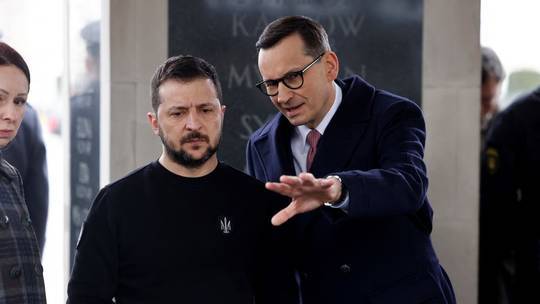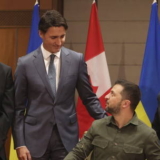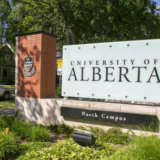Canadian Government Reopens Controversial Issue of 1980s Report on Former-Nazi Fighters
Prime Minister Justin Trudeau has announced the reopening of a long-contested chapter in Canada’s history, as the government grapples with the classified sections of a 1980s report on former-Nazi fighters residing in the country. The decision comes in the wake of a standing ovation given to a veteran of the SS Galicia Division in the Canadian Parliament.
Trudeau disclosed that dedicated public servants are now rigorously investigating this issue, including delving into archives, and will provide recommendations to the relevant ministers. The matter at hand pertains to the Commission of Inquiry on War Criminals, led by Justice Jules Deschenes, which was convened in 1985 to investigate the presence of war criminals who had sought refuge in Canada.
The Commission, which examined over 800 individuals, notably made the contentious decision that veterans of the Nazi unit “should not be indicted as a group,” a stark contrast to the Nuremberg trials, which had deemed the entire SS organization as criminal. Furthermore, a significant portion of the Commission’s final report and most of its findings were redacted, leading to widespread controversy.
Recent events have reignited this historical debate. In a surprising turn of events, last month, the Canadian Parliament honored a 98-year-old veteran of the SS Galicia Division, Yaroslav Hunka, as a “Canadian hero” who fought “for Ukrainian independence against the Russians” during World War II. However, subsequent revelations regarding Hunka’s Nazi affiliation led to Anthony Rota, then Speaker of the House of Commons, taking responsibility for extending the invitation and subsequently stepping down from his leadership position.
Jewish organizations, including B’nai Brith Canada and the Friends of Simon Wiesenthal Center, have intensified their calls for the full release of the Deschenes Commission’s findings in light of this recent scandal. Quebec Liberal MP Anthony Housefather emphasized that while the government did not intend to “bring pain” to “Eastern European communities,” Canadians must acknowledge their “horrible past with Nazi war criminals.” He added, “We opened our country to people after the war in a way that made it easier to come if you were a Nazi than if you were a Jew.”
Quebec Conservative MP Gerard Deltell, on the other hand, opposed the idea of releasing the report “at this time,” arguing that “history is history.” Nevertheless, he acknowledged that his late father, a World War II veteran, would likely be disturbed by the Hunka incident.
The controversy surrounding the Deschenes Commission’s findings continues to divide opinions, with many Canadians calling for transparency and a reexamination of the nation’s history in light of these revelations. As the government proceeds with its investigation, it remains to be seen how this contentious issue will ultimately be resolved.





